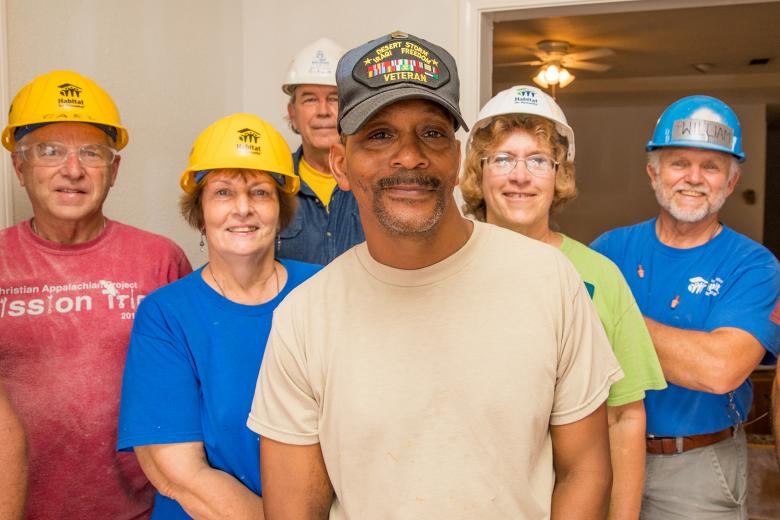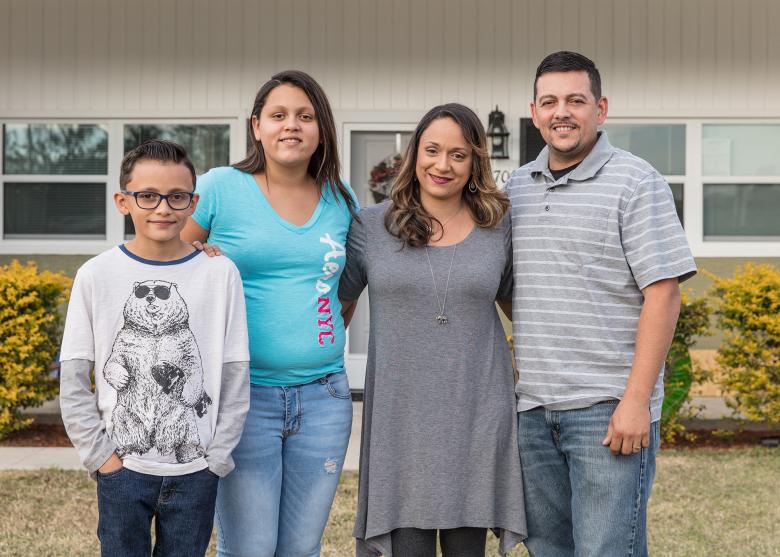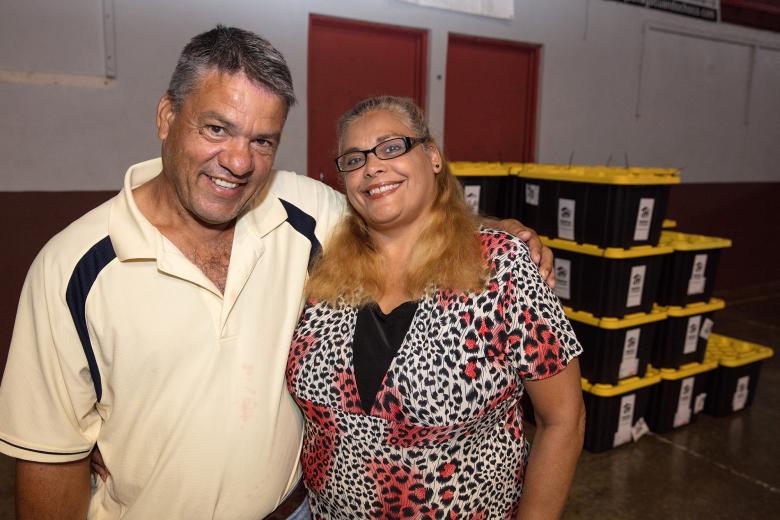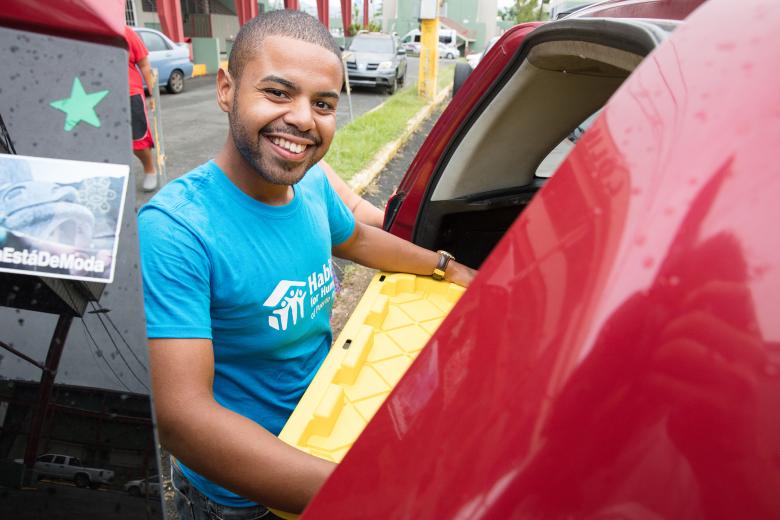
Hurricane recovery: Habitat Hammers Back update
Thanks to the generosity of donors and supporters, Habitat for Humanity performed more than 5,000 disaster recovery services in Texas and 4,000 in Florida in the first six months after Hurricanes Harvey, Irma and Maria made history in 2017.
The level of infrastructure damage made our immediate response in Puerto Rico difficult. But within weeks of the storm, Habitat had assembled 2,000 shelter repair kits to help people make essential repairs as the first phase of our multiyear recovery effort with families across the island.
Texas
In Texas, several factors hamper families’ efforts to recover and rebuild: immigration status, a lack of flood insurance and FEMA eligibility, and laws that require tenants to continue to pay rent if at least some parts of the house are inhabitable.
Our strategy includes advocacy training so that lower- and moderate-income residents are not shut out of services. We also are bringing multifamily buildings up to code and revitalizing neighborhoods in unincorporated areas.

Florida
In Florida, many disaster survivors face vulnerabilities specific to migrant workers, the elderly and people with low-wage, hourly jobs. Florida has the largest share of people age 65 or older than any other state: 19.9 percent. We have seen that senior citizens often require greater assistance with everything from immediate post-disaster muck-and-gut work to navigating the complicated process of applying for government assistance.
The cost of housing is likely to rise among newer, more resilient homes, making it even harder for low- and moderate-income families to find decent homes without help from organizations like Habitat. Our strategy includes repairing older homes to bring them up to code and building new housing developments to offer affordable homeownership opportunities to first-time homebuyers in safe Habitat communities.

Puerto Rico
In Puerto Rico, less than 1 percent of housing units were covered by flood insurance. In some of the hardest-hit communities, 90 percent of homes were wiped out. What’s more, tens of thousands of residents live illegally on abandoned or government land and therefore have no legal claim to their homes or the land they’re built on, disqualifying them from receiving federal aid.
Our long-term strategy includes working alongside thousands of homeowners to repair or rebuild and offering classes to thousands more to teach them safe building techniques and practices to use on their own homes and the homes of others.

Caribbean
Discussions are underway with government officials in Antigua and Barbuda and the British Virgin Islands, where we have also offered support and assistance. In addition, the local governments in Trinidad and Tobago asked for our help in the recovery phase of the response.
In the Dominican Republic, we helped 800 displaced households — 4,000 individuals — with initial debris cleanup and sanitation issues. We also distributed emergency shelter kits, including tools and tarpaulins, to the most affected areas, and provided technical advice on using the kits to repair homes or build emergency shelters.
We are working in partnership with World Vision and other organizations to help 200 families — 1,000 individuals — in the Dominican Republic with repair and new construction of houses and toilets as well as training on healthy housing, safer construction techniques and planning for future emergencies.
In the first six months, Habitat’s recovery efforts included:
Florida
- Delivered more than 4,800 disaster relief and recovery services, including emergency repairs, cleanup, case management assistance and debris removal.
- Completed more than 370 construction projects, including home repairs or new homes.
- Funded 17 loans to homeowners to fill insurance or Federal Emergency Management Agency coverage gaps.
Texas
- Delivered more than 5,300 disaster relief and recovery services, including emergency repairs, cleanup, case management assistance and debris removal.
- Completed more than 180 construction projects, including home repairs, rehabilitations or new homes.
- Funded more than 200 loans to homeowners to fill insurance or Federal Emergency Management Agency coverage gaps.

Puerto Rico
- Assembled 2,000 shelter repair kits to help people make essential repairs.
- 2,000 solar lanterns.
- 2,000 solar panels.